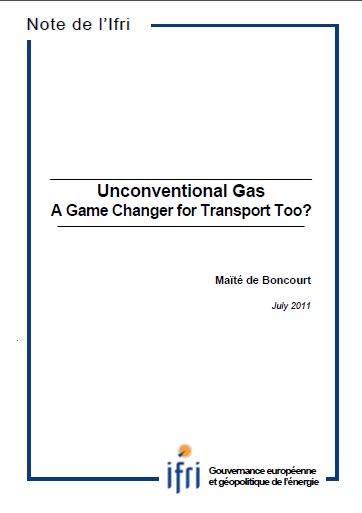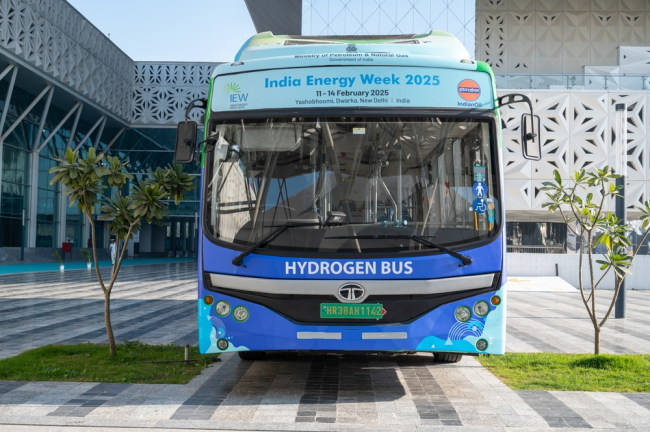Unconventional Gas: A Game Changer for Transport Too?

A new technology trend, the development of natural gas vehicles, is emerging in the transport sector.
While not new this technology is now being simultaneously revived by the discovery of significant amounts of unconventional gas, by the rise of oil prices, and by the decreased confidence in the sustainability of nuclear technology (and subsequent rising electricity prices in Europe). Natural gas could provide a path to a lower carbon intensive transport sector in both developed and developing countries. Gas is cheaper and less polluting than oil. It emits significantly less local pollutants than diesel and less CO2 than gasoline. Historically present in Italy, South America, Iran and Pakistan natural gas vehicles are emerging in other countries: in some European countries, in the United States, in the Chinese provinces of Shaanxi and Henan, and in India. Asia and developing countries are expected to be responsible for a large share of the car market growth in the next years and consequently for a significant share of transport CO2 emissions. The adoption of a given technology there could impact global markets and global CO2 emissions significantly. While the trend is still loose, this paper responds to the possibility that this technology will expand: what would it imply? would it compete with the development of the electric vehicle? is it desirable?
It appears that the advantages of natural gas vehicles are not as clear cut as they seem. Environmentally, they are beneficial only to countries with little -if no- CO2 emissions standards. Several issues including the development of costly infrastructures are likely to raise costs. Natural gas vehicles development could also slow down the roll out of electric vehicles, hence delaying hopes of smoothing the integration of renewables into the power grid through the use of car batteries" storage capacity. But the main concern is the availability of cheap gas itself, on the basis of which this technology shift could take place. Markets for gas are tightening, price increases have already been announced in many places, and the development of unconventional resources is still surrounded by uncertainties in regards to its cost and timeframe. But even more, gas might be more efficiently used for power generation. The trend is however still nascent. The targeted markets are niche markets, and many bottlenecks including the determination of some governments to promote the electric vehicle instead, would have to be overcome before variants of natural gas transportation technologies can sustainably and significantly secure a large share of vehicle fleets.

Available in:
Regions and themes
ISBN / ISSN
Share
Download the full analysis
This page contains only a summary of our work. If you would like to have access to all the information from our research on the subject, you can download the full version in PDF format.
Unconventional Gas: A Game Changer for Transport Too?
Related centers and programs
Discover our other research centers and programsFind out more
Discover all our analysesIndia’s Green Hydrogen Strategy in Action: Policy Actions, Market Insights, and Global Opportunities
India is poised to remain the world’s fastest-growing major economy, and this rapid growth is driving a sharp rise in energy demand. As the most populous country on the planet, India urgently needs to decarbonize its energy systems.
Water in Mexico: an Emergency that Will Wait
Access to water is already and will become increasingly problematic for Mexican economic actors due to the progressive scarcity of the resource resulting from climate change, a geographical distribution that does not coincide with that of the population or economic activity, and management that has so far been far too lax.
AI, Data Centers and Energy Demand: Reassessing and Exploring the Trends
The information and communication technologies sector today accounts for 9% of global electricity consumption, data centers for 1-1.3%, and artificial intelligence (AI) for less than 0.2%. The growing energy demands of cloud services first, and now AI workloads (10% of today’s data centers electricity demand), have exacerbated this trend. In the future, hyperscale data centers will gain shares amongst all kinds of data centers and AI will probably account for around 20% of data centers electricity demand by 2030.
Unlocking India’s Energy Transition: Addressing Grid Flexibility Challenges and Solutions
India is rapidly scaling up its renewable energy (RE) capacity, adding 15–20 GW annually, but the ambitious goal of 500 GW of non-fossil capacity by 2030 is at risk unless the pace accelerates.









